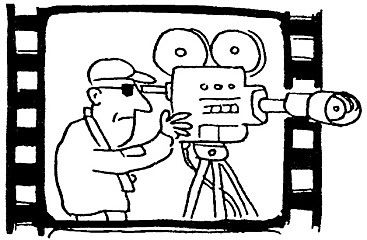Tshisekedi is in a checkmate position; he is running out of options and only a miracle can save him
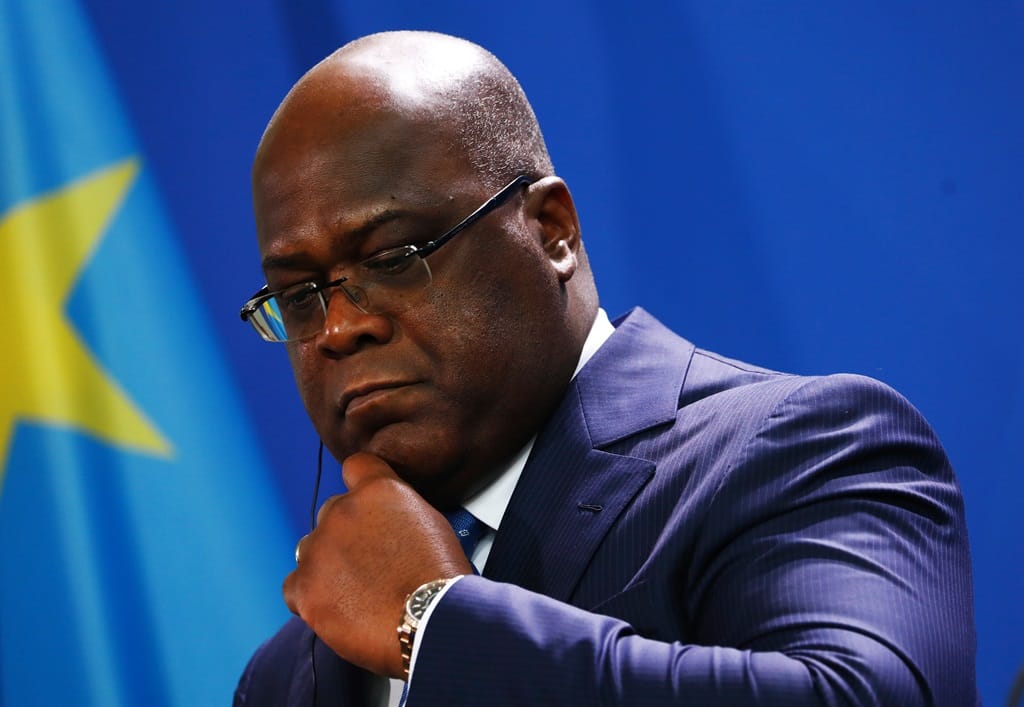
A couple of days ago a small delegation of Tshisekedi’s government travelled to Kampala to meet a delegation of the M23. Tshisekedi’s office sent a midget crew of 3 negotiators of which most people had never heard of. The M23 sent a delegation of 4 members of which the most surprising name was that of Rene Abandi, Laurent Nkunda’s former right hand and Sultani Makenga’s former diplomatic collaborator before 2013. The M23 delegation was led by Lawrence Kanyuka, a long time M23 member who can nowadays be seen as a close collaborator of Corneille Nangaa, the leader of the Alliance Fleuve Congo (AFC), the new political partner group of the M23. Several sources told us that the pressure was growing on Kinshasa to talk directly to the rebels; the FARDC coalition is down on its knees and becoming defenseless against the M23, Tshisekedi is facing growing pressure from opposition parties in Kinhsasa, the population of the Kivus is fed up with the war and many of them would welcome the rebels to take over the province and have peace. This scenario is not much to the liking of the bigger countries inside the international community who know very well that the fall of the Kivus might have a domino effect on other regions in the country to start running things themselves. This could jeopardize the steady flow of minerals out of the country, goods they need badly to feed their economy. But a stubborn Tshisekedi who refuses to negotiate with his enemies is also damaging for this approach. That is why Washington, Brussels and Paris are now beefing up their pressure on Kinshasa. They are trying to keep this in balance by threatening the Rwandan government with sanctions as well, but Kigali didn’t ask for this war and is only involved in it to secure its borders.
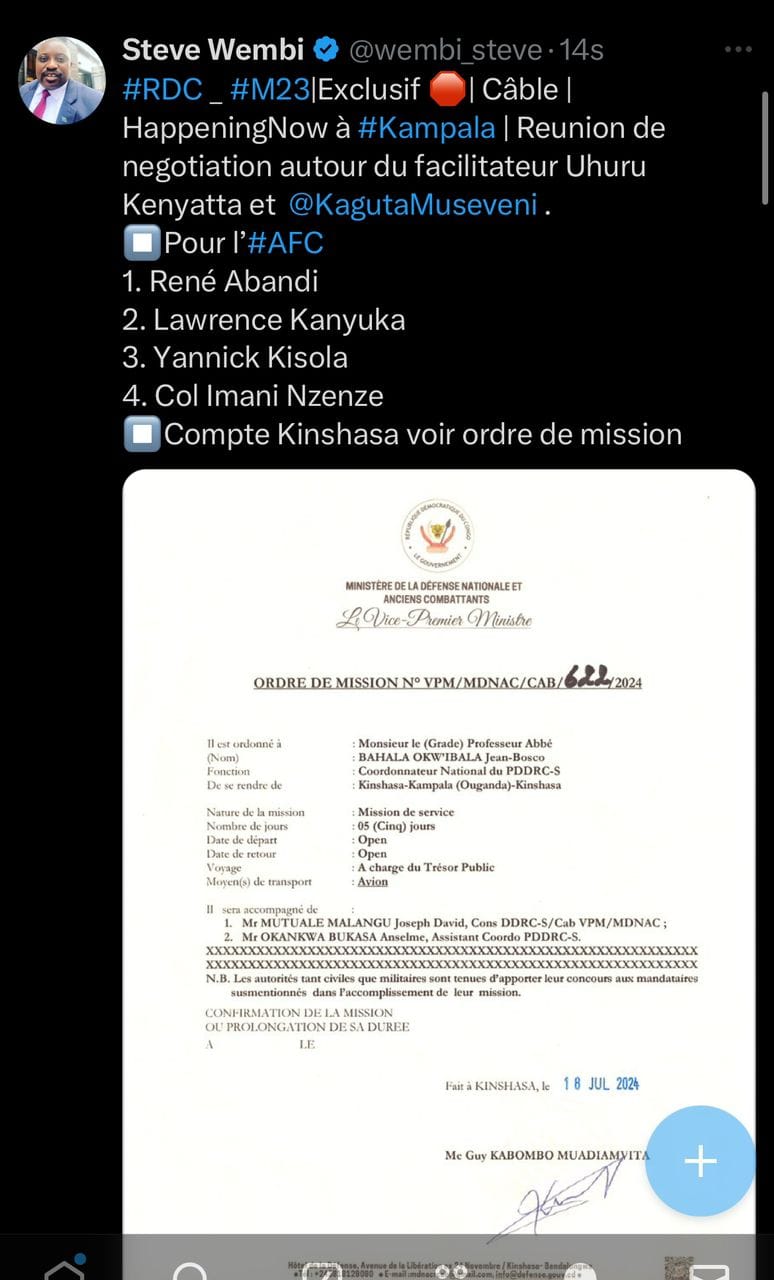
That these talks turned into another Congolese dombolo-soup was not the fault of the rebels: Kinshasa had asked for this meeting itself, it had issued an official ‘ordre de mission’ for its delegation members and it had already torpedoed a possible positive outcome before this delegation had met the M23 representatives. They had gotten away with this trick several times before and in their minds, they had answered the call of Washington to negotiate, and they were able to sweep this happening under the floormat of the Congolese public opinion. Next week a Rwandan delegation is supposed to meet a Congolese delegation in Luanda where similar derivative tricks might be expected. Patrick Muyaya’s hat is still full of white rabits but the Americans are becoming weary of that and their patience is not endless.
The whole discussion between good and wrong takes place on different social media platforms. We decided to contact once again our informants to allow them to give us their point of view. Their diplomatic and official statuses do not allow them to talk openly, others fear for their life:
Checkmate
A UN observer in Kinshasa with a military background summarizes it as following: “It is a fact that Tshisekedi already lost the war against the M23 and many people think that as soon as Goma, Kavumu and may be also Butembo will fall, his days at the head of this country will be numbered. While he’s running out of fighting partners and it becomes clear that his whole wazalendo set up and the incorporation of the FDLR into the ranks of the FARDC was not successful. And as the SADC troops avoid combat the political opposition in Kinshasa is also turning against him. Many of these predators are just waiting for an opportunity to stand up and to send him into exile. His investment in new war tools such as drones, jets, new guns and tons of ammunition have also been futile. His enemies are “spoofing” (jamming) the GPS signals of these things and this is making them useless. Most of the other extra weapons and ammunition that was sent to the east of the country ended up in rebel hands. Goma is surrounded, Kavumu can be taken by the rebels at any time and Butembo can fall at any time as well. Very soon the FARDC will lose all its possible access points to send reinforcements and logistics for a possible counter offensive. The present foreign mercenary force has also proven highly ineffective. Negotiations might be the only option left for the Congolese president.

The only thing that prevents the Tshisekedi regime to collapse completely is the pressure countries such as the US put on Rwanda not to help the M23 to enter Goma and Bukavu. But this is tricky business for Tshisekedi. If Goma falls, Rwanda might be sanctioned but nobody expects these sanctions to be life threatening for the Rwandan economy. The Americans know that Rwanda does not want to occupy the Kivu region and they also know that this time, they will stop their actions once the Kivus will be stabilized. Another leadership might be put in place in Kinshasa, one that will allow all this to happen. At this stage, most of Tshisekedi’s opponents will be ready to step into a strategy like that. Another thing that is not playing into his advantage are the upcoming elections in the US and the biggest disaster for him would be the re-election of Donald Trump who does not care about Africa and who doesn’t even know where Kinshasa is located. Another important player in Congo is China for whom the minerals they extract here might be even more important than for the US and Europe. They’ll probably blink an eye on the Americans when they’ll have Tshisekedi replaced, well knowing that an open conflict in Africa with Europe and the US might turn into a big problem for them. The Congolese president is in a checkmate position; he is out of options and only a miracle can save him.”
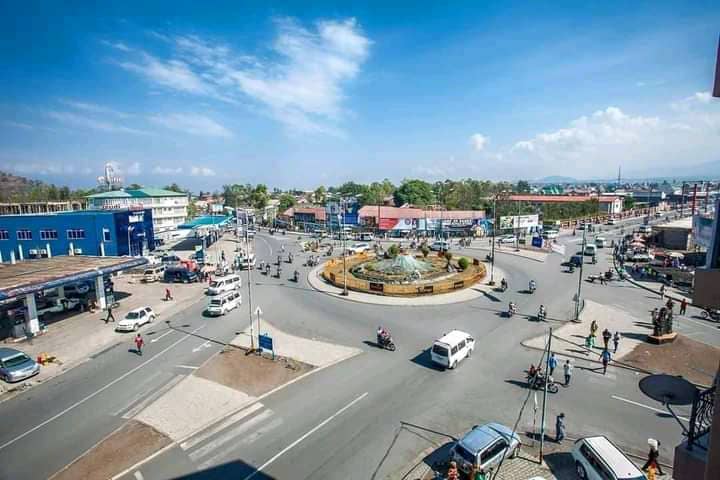
Kigali
A befriended foreign analyst who knows this region inside and outside goes even a couple of steps further: “We recently checked the atmosphere in Goma, and I must conclude that the majority of the so called ‘Gomatricians’ {inhabitants of Goma) would like the hostilities to stop as soon as possible. Even when this means that the M23 moves into the city. They are fed up with the terror of the wazalendo (armed militia members), the FDLR and the FARDC, they want peace, and they want to be able to work to make a living. They know that the M23 are far better disciplined than the FARDC. A couple of days ago the government in Kinshasa put an import ban on some goods coming from Rwanda. Because of this, there are several shortages in Goma and in Bukavu. The whole construction business sector came to a standstill because of acute cement shortage. This is just an example! There are tens of thousands of IDP’s in Goma who want to return to their villages but the wazalendo and the FARDC do not allow them to leave.”
Rwandan officials do not seem to be too concerned about the sanctions treat. “We learned how to live with that,” tells us a local official. “The opinion of the outside world is mostly turned against us. The anti-Rwanda lobby is strong, and they can blame us for all the misery that is taking place in the DRC. We do not want war; we want to do business with them in a normal way. And we certainly do not want to stay there once our job on the spot is finished. The FDLR must be neutralized, arrested and sent back to Rwanda and the Congolese refugees must be able to return home in a safe way. Their land titles and houses should also be restored. An armed force should remain present to defend them. Goma, Butembo and Kavumu-Bukavu are ripe apples to be plucked but the M23 should wait for the outcome of negotiations. We want to solve this problem as soon as possible and focus ourselves on more important matters. The international community is still playing the cards of Kinshasa and while they are doing this, they’ll push the country further into the abys. If this situation slips out of hand, we will not be the ones to blame. Rwanda has the right to defend itself! By sending a midget negotiation team to Kampala that has no authority to say or decide things Kinshasa is making things only worse.”
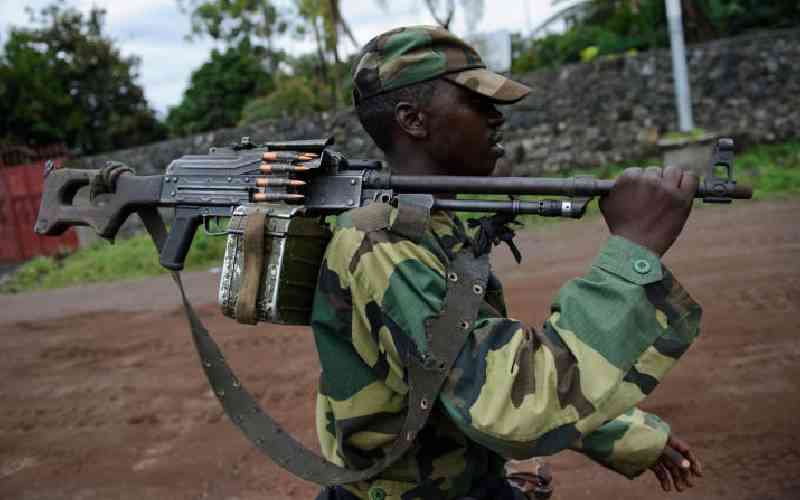
Negotiations
“The fact that Kinshasa accepted to send a delegation to Kampala to face a M23 delegation can be compared with the reaction of a heroin junky or an alcoholic who, in a moment of soberness, understands that he has to go in rehab to avoid killing himself,” tells us a foreign diplomat in Kinshasa. “Tshisekedi is doing everything he can to stay in power, his lust and addiction to cash in more money are pushing him to do that. But he knows that he is reaching the end of the rope; he’s running out of options and of support and more and more people start to think that his stubbornness might lead to the collapse of the whole country. The Americans are verbally still supporting him, and they might openly even accuse the M23 of destabilizing the country. But this is just shadow boxing. To avoid a disruption in the flow of minerals out of the country (when the M23 will take the two Kivu provinces) and to avoid the country to fall apart like a stash of domino blocks, they will have to act very soon to bring Tshisekedi back in line or to replace him with a more suitable and obedient partner. One that will talk directly to the M23, maintain the peace in the strategic mineral regions in the south, guarantee the continuity of the outflow of the minerals at the same favorable conditions, etc. In fact, China and the US are nearly on the same level of interest in Congo when it comes to the available minerals: they both take advantage of the local corruption, the low wages and chaos in the country. The only difference between them is that the Americans and the Europeans are still doing this under a pseudo democratic umbrella. The Chinese and there are the Chinese are using a more brute strategy to get what they need. These superpowers have never cared for the wellbeing of the Congolese population; the Americans and the Belgians put Mobutu in power to start with and replaced him with other marionets such as the Kabila’s and later also Tshisekedi. The Chinese are fueling the chaos by selling cheap weapons to Kinshasa. That most of these tools end up in the hands of criminals and rebels is not their problem; when the chaos gets bigger their goal can be obtained.”
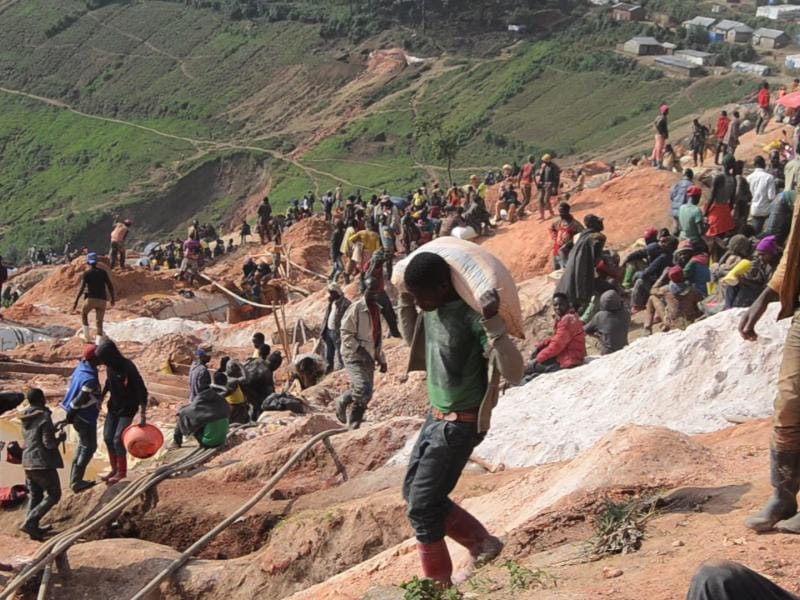
“Pushing Tshisekedi towards negotiations is clearly not working: the recent talks in Kampala show this clearly. He acts like a dirty kid who is afraid of water. Washington also clearly understands that the moment to act has arrived: condemning the M23 as the nearly sole culprit of the problems in Congo is not going to help to solve this problem either and is only consolidating and justifying Tshisekedi’s actions. We have come to a point where everybody understands that negotiating will never solve the problem and that action is needed. In a scenario like this, the M23 cannot be blamed to put more pressure on the FARDC, Goma and Bukavu might be taken by the M23 and Congo might collapse.
African spirit
“In this discussion, the Europeans and the Americans are often forgetting the growing African consciousness to take matters into their own hands, “adds a Belgian observer. “They forget that African leaders more often start to look at their colleagues in other countries for support and approval and that many African leaders are refusing now to put the most of their eggs into European or American baskets. Look at what happened in central- and west- Afrika where the French have been kicked out of several countries and where the Americans had to close military bases. Some African countries such as Rwanda have been doing so well that they have become an example for other African countries and many African countries start to help each other to overcome their problems. Rwanda is a good example of this, and it is playing a leading role in this development. Add to that that Belgium is de facto finished as a colonial power in the African Great Lakes Region and that the Americans are being seen as an unreliable partner, given the fact that very soon a madman like Donald Trump might become president again. Many Africans think that this would have a positive effect on the development of the continent as Trump is expected to put its nose less into regional affairs as the democrats who are as disrespectful for the needs of the Africans. Before the M23 and the Rwandans will listen to the Europeans and ther Americans, they will first listen to their neighbors such as Uganda, Kenya, Tanzania, etc. The South-Africans lost a lot of prestige over the years as they also had pretention to impose their views on other African countries while their own country slipped into a racist and corrupt shadow of its initial ideas. The Rwandan top leadership understands this well by putting regional policy making way in front of their reputation in Europe and in the States. Kagame does not have to fight violent wars to underline his policy: look what he is doing in the Central-African Republic and in Mozambique. He is stimulating inter African solidarity and he’s developing his country in such a way that other African leaders want to copy his system. Other African leaders also know that he does not want to balkanize the DRC and that he wants to keep this war out of his own country. Add to this that even the Tanzanians are lowering their anti-Rwandan guard because this ongoing war in the DRC is also costing them money. Kagame’s success is becoming a thorn in the eyes of the Europeans and the Americans because he puts the Africans before a dilemma: either they can take things into their own hands or they can continue to dance on the tunes of the Americans, the Europeans and/or the Chinese.”

M23 - Kongomani
This weekend we had a very long and open discussion with a long-time friend who is and was always following up on all the different rebellions in Nort-Kivu and who is also in very close contact with the elders of other ethnic communities in this province. His views have always been of great value to us.
He said: “The M23 scared a lot of supporters by taking Cornelle Nangaa on board to enlarge its political specter. Nangaa might not have been the best choice because it was difficult to call him clean: many saw him as a smooth talker who was nicely dressed, who helped Tshisekedi into his controversial presidency seat, who had also shared his bed with Kabila and who was involved in several monkey business deals. Hundreds of predators like that are crowding the cabinets of ministers and the parliament building in Kinshasa. They do not hesitate to switch sides if it suits their careers and most of them have only one goal in life: to get rich as soon as possible. During all the previous rebellions we have witnessed in this region, we’ve seen passing through Goma dozens of these shiny prototypes: they didn’t bring anything with them and for them these well-organized rebellions offered a good trampoline to re-enter the political stage in Kinshasa. This happened with the AFDL, Laurent Nkunda’s rebellions and Makenga’s uprising in 2013.”
“But this time other dynamics are playing. Nangaa is not allowed full arm space and his actions have convinced many outsiders and insiders that the grievances of the M23 are not only Tutsi related. The Kongomani leadership in North-Kivu has always suffered from anemia when it comes to its political representation: Mobutu made some of them very rich and gave them good jobs to skip them later. He started dating the wife of the Rwandan president Habyarimana and promised the Rwandan Hutu community extra living space in the Kivu’s. This resulted in the first killings and the Magrevi revolts. From that moment on the Congolese Tutsi community was mentally at war with the central government in Kinshasa.”
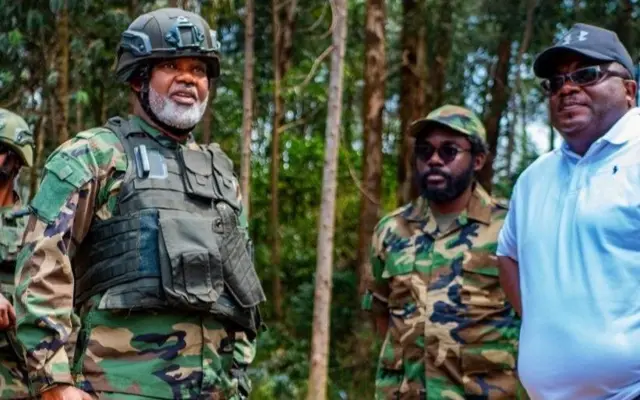
“In Nangaa Kinshasa saw someone they could understand and who was sharing their own tricks and background. That frightened them. He was widely misunderstood by several Kongomani community leaders when he started shouting that he would march on Kinshasa and instigate a full out revolution in the rest of the country. These families do not want to send their sons and daughter into a far-off war that is not theirs. For others he was leaning too much towards the Ugandans with whom Kinshasa already had struck a deal to counter the ADF-Nalu. Most of the Kongomani supported the new M23 rebellion because Makenga promised them to neutralize the FDLR and to allow them to return to Congo to reclaim their properties. Nangaa’s speeches contradicted this cause. But I have the impression that Nangaa is better under control of the M23 leadership than his other flamboyant predecessors: Rwanda will never support a new rebellion outside the borders of the Kivu’s as they have learned their lesson in the past as well. And the M23 will be reluctant to send their soldiers outside of that region as well. Nangaa and possibly some others will have to find their own way to the Congolese capital. He might just be allowed to use the Kivu’s as his rear base and gain some terrain towards his home region in the oriental province with the support of the Ugandans. I think he is smart enough to understand that his only road into Kinshasa will be via negotiations once Tshisekedi must leave. And this might be sooner than we think.”
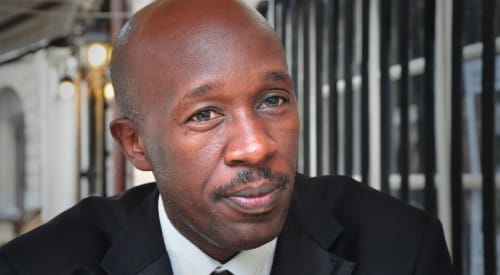
“As we speak, I can already see that Makenga is trying to bring the M23 back in balance; they brought back Rene Abandi, the former right hand of Laurent Nkunda and Sultani Makenga. Abandi was out of the running for a couple of years but when the news came that he was representing the M23 at the negotiation table in Kampala I started receiving a lot of reactions from several prominent members of the Bagogwe community. His presence in the ranks of the M23 reassures people that common sense will prevail. If Nangaa is smart, he can still use the M23 to make it back to Kinshasa and if the M23 is smart they’ll keep him on board until the time comes that he’ll have to go solo. They owe him for the fact that he brought new life in the political structure of their movement and that people such as Patrick Muyaya are not repeating any longer the song that Rwanda and the M23 want to balkanize the country. Kagame does not have this in mind. He just wants peace, shut up the FDLR and do business in a normal way with the Congolese. Do not forget that Nangaa also used to be a close collaborator of Kabila, another power-hungry crocodile, who is keeping a low profile and is waiting for the good moment to attack his opponent. Vital Kamhere wants to negotiate but Tshisekedi still has him on his leach. Jean-Pierre Bemba’s actions have always been unpredictable, but he will also throw his impressive weight into the ring once Tshisekedi will be knocked out. And the business tycoon Moise Katumbi is also waiting for an opportunity to hit back. Katumbi might be the only acceptable figure to lead a new interim government once Tshisekedi moves back to Brussels. I strongly believe that Tshisekedi’s potential successors will be open for discussion with the M23.”
“In Kinshasa Tshisekedi’s position is weakening as well. Some of his direct opponents are just waiting for the moment that can trigger off his complete downfall. The fall of Goma might offer that occasion. Tshisekedi will have big problem to explain that disaster to the Congolese population. We are being approached by several elders of the other ethnic groups in the Kivus. I’m not talking about the leaders of the local société civile of whom most also are involved with local militia’s that create most of the havoc. Most of the elders tell us that their people are fed up with this war. I’m convinced that most of the people in Goma want to get rid of the wazalendo, the FDLR and the FARDC and that they would welcome the M23 if they can promise them to leave town as soon as peace is restored. According to the UN group of experts there are more than 2 million IDP’s live in refugee camps inside and outside Goma. Most of them want to return to their villages. Others still believe the narrative of the FDLR and the société civile that the M23 is raping girls and killing opponents in the zones they liberated. But this is not true. And the wazalendo and the FDLR are guarding the roads outside the camps to prevent these refugees to go back home. I’m in contact with the Nande business community in Butembo and they would also welcome the M23 to come and restore order. The same goes for a big part of the Congolese Hunde- and moderate Hutu- communities.”
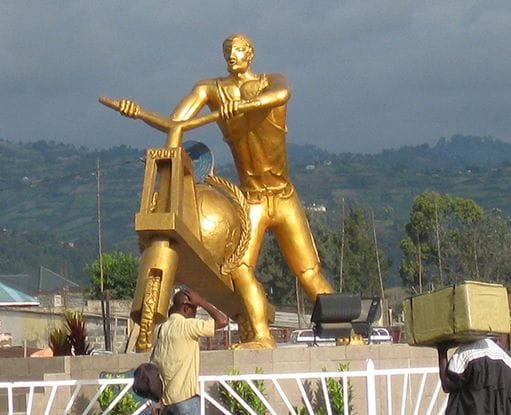
Goma
The key question remains what will happen with Goma and possibly also with Butembo and Bukavu. The M23 is already surrounding the city of Goma and it can take Butembo and Kavumu at any time. For the M23 marching into the city would therefore only be a symbolic act. As long as the FARDC remains in Goma the Tshisekedi regime can still use the argument that the war is not completely lost. Uganda would also welcome this move as it would re-open the axe Goma-Bunagana-Kisoro for commercial traffic. “The city of Goma is a ripe apple to pluck”, we are often told. More and more people think that the moment has come to force Tshisekedi out. He is refusing any form of direct talks with the rebels and the international community is allowing him to do this. Why? The sanctions they are threatening the African countries with will not have them change their minds. With a couple of smart diplomatic shortcuts all this could have been avoided. To be followed……
Adeline Umutoni & Marc Hoogsteyns, Kivu Press Agency
